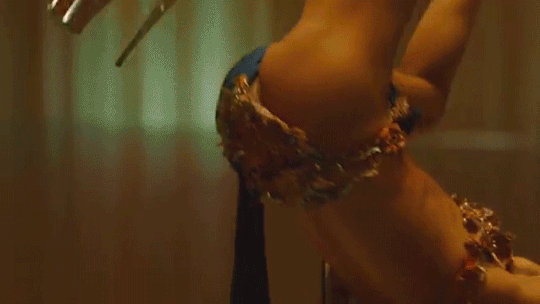#also this is the last time were seeing gregory cos i accidentally released his spirit into the netherworld by leaving him in miles inventor
Explore tagged Tumblr posts
Text
On the way to commune with the dead!


Pleased to meet you Gregory Edgeworth, now can you tell me how u died

#yes these are shitty pics but do you know how annoying it is to screenshot these things on and then close the game tab?#do you know how slow my pc gets? nah you only think about yourself#also this is the last time were seeing gregory cos i accidentally released his spirit into the netherworld by leaving him in miles inventor#my bad#ace attorney#gregory edgeworth#misty fey#marvin grossberg#robert hammond#sims 4
20 notes
·
View notes
Text
Magdalene by FKA Twigs, a review.
youtube
I’ve been learning some shit from women from as long as I’ve been alive. Always some other shit that I never asked for but I got told it. I used to treat them things they said as laws as a child, but I never saw them in a book, so then I stopped believing them. They were always hushed laws though, laws told with squinted eyes and italicized whispers, laws told when no one else was around.
I mean, now of course men make the real laws that we know and live by. Well come on now, we write them on parchment, and display them on lights, we code them into computers, inscribe them on coins and stone. But these women…man women tell you some other shit, like glue shit, in low, muttered tones in the quiet part of the house. Like advice on… well not how the world works, but how to deal with the world when it works against you, and how to make it work for you. But you see, I’ve come to believe that the fairer sex tells you different laws than the vaunted laws and advice of our fathers because they all around see the world differently than men do. They may, in fact, have been harbouring different goals than us all along.
I mean for christssakes us men have our hero’s journey as clear as day, writ large and indelible across history books and entertainment. You could take that Joseph Campbell mono-myth theory and see it expressed in Arthurian swash-buckle, the middle earth ring-slaying of Tolkien, or in the recently concluded tri-trilogy of Star Wars galactic clashes. We’re in the empire business, as Breaking Bad’s Walter White infamously said. But still, the question always lingered to me: what is the heroine’s journey? Is it really just a lady in a knight’s armour? Or some tough-as-nails spy for some interloping government’s intelligence agency, delivering kidney kicks in a designer pencil skirt?
Well, I’ve come to believe that the heroine’s journey is navigating the waves of history we imperial and trans-national men make from our railroads and pipelines, our satellites and wars, them at once preserving a culture and sparking a path and creating a bond between cultures in order for them and their (il)legitimate brood to survive. That old chestnut about how behind every successful man is a woman always unnerved me by its easy adoption. I kept thinking ‘bout that woman. I kept thinking, what the fuck was she thinking?

You see women’s heroes, they ain’t as clear as day to me. They don’t kill the dragon, they don’t save the townspeople, they don’t shoot the Sherriff, or the deputy, or anyone most times. When I ask people in public at my job what super power they would like, most men go for strength, flight, and regenerative abilities (my pick). Most women went with mind reading and flight. In late night conversations though, with the moonlight coming through the white blinds and resting soft on us like so, I sometimes manage to hear that women’s heroes heal and clean the sick of the nation, in sneakers with heels as round as a childhood eraser; they feed a family with one fish and five slices of wonder bread; they would run gambling spots in the back of their house, putting the needle back on the Commodores record and patrolling the perimeter of the smoked-out room with a black .45 nested by their love handles; they climb up flag poles and speak out loud in public for the disposed and teach children those unwritten, floating laws while cloistered in the quiet part of the house.
Although their heroines are sometimes from the top strata of society –a Pharaoh here, an Eleanor Roosevelt there, an Oprah over there—they also name a healthy mix of radicals and weirdos with modest music success, people like Susan B. Anthony, Frida Kahlo, Virginia Woolf, or Nikki Giovanni, I mean did Nina Simone or Janis Joplin even crack the Billboard top ten? Yet there they are, up on the walls of a thousand college dorms across the country. So even though I couldn’t’ve foreseen it, it makes sense that of all the ultra-natural creatures, of all the great conquering kings and divining prophets of the Holy Bible, Mary Magdalene ends up the spirit animal for the album of the year for 2019.
Mary Magdalene was a follower of Jewish Rabbi Jesus during the first century, according to the four Gospels of the New Testament of the Bible, a figure who was present for his miracles, his crucifixion and was the first to witness him after his resurrection. From Pope Gregory I in the sixth century to Pope Paul VI in 1969, the Roman Catholic Church portrayed her as a prostitute, a sinful woman who had seven demons exorcised from her. Medieval legends of the thirteenth century describe her as a wealthy woman who went to France and performed miracles, while in the apocryphal text The Gospel of Mary, translated in the mid-twentieth century, she is Jesus’ most trusted disciple who teaches the other apostles of the savior’s private philosophies.
Due to this range of description from varying figures in society, she gets portrayed in differing ways, by all types of women, each finding a part of Magdalene to explain themselves through. Barbra Hershey, in the first half of Scorsese’s The Last Temptation of Christ (1988) plays her as a firm and mysterious guide, a rebellious older cousin almost, while Yvonne Elliman, in Norman Jewison’s 1973 film adaptation of Lloyd Weber’s Jesus Christ Superstar is lovelorn and tender throughout, a proud witness of the Word being written for the first time. In “Mary Magdalene,” FKA Twigs, the Birmingham UK alt-soul singer, describes the woman as a “creature of desire”, and she talks about possessing a “sacred geometry,” and later on in the song she tells us of “a nurturing breath that could stroke you/ divine confidence, a woman’s war, unoccupied history.” Her vocals that sound glassy and spectral in the solemn echoes of the acapella first third, co-produced by Benny Blanco, turn sensual and emotive when the blocky groove kicks in. That groove comes into its own on the Nicolas Jaar produced back third, and when this all is adorned with plucked arpeggios it sounds like an autumnal sister to the wintry prowl of Bjork’s “Hidden Place” from her still excellent Vespertine (2001).
This blending of the affairs of the body and of Christian theology is found in the moody “Holy Terrain” as well. While it is too hermetic and subdued to have been an effective single, it still works really well as an album track. In this arena, Future is not the hopped up king of the club, but a vulnerable star, with shaded eyes and a heart wrapped up in love and chemicals, sending his girl to church with drug money to pay tithes. Over a domesticated trap beat he shows a vulnerable bond that can exist, wailing his sins and his devotion like a tipsy boyfriend does in the middle of a party, or perhaps like John the Baptist did, during one of his frenzied sermons, possessed and wailing “if you pray for me I know you play for keeps, calling my name, calling my name/ taking the feeling of promethazine away.”

Magdalene, the singer’s sophomore release, takes the mysterious power and resonance of this biblical anti-heroine, and involves its songs with her, these emotional, multi-textured songs about fame, pain and the break up with movie star boyfriend Robert Pattinson. With “Sad Day,” Twigs sings with a delicate yet emotional yearning, imbued with a Kate Bush domesticity. The synth pads are a pulsing murmur, and the vocal samples are chopped and rendered into lonely, twisting figures. The drums crash in only every once in a while, just enough to reset the tension and carve out an electronic groove, while the rest of the thing is an exercise in mood and restraint, the production by twigs, Jaar and Blanco, along with Cashmere Cat and Skrillex, leaves her laments cosseted in a floating sound, distant yet dense and tumultuous, the way approaching storm clouds can feel. Meanwhile “Thousand Eyes” is a choir of Twigs, some voices cluttered and glittering, some others echoed and filled with dolour. “If you walk away it starts a thousand eyes,” she sings, the line starting off as pleading advice and by the close of the song ending up a warning in reverb, the vintage synths and updated DAWs used to create these sparse, aural haunts where the choral of shes and the digital ghosts of memory can echo around her whispered confessional.
In many of these divorce albums, the other party’s role in the conflict is laid bare in scathing terms: the wife that “didn’t have to use the son of mine, to keep me in line” from Marvin Gaye’s Here My Dear from 1979; the players who “only love you when they’re playin’” as Stevie Nicks sang on Fleetwood Macs Rumours (1977); or as Beyonce’s Lemonade (2017) charges, the husband that needs “to call Becky with the good hair.” At first though, Twigs is diplomatic, like in “Home with me,” where she lays the conflict on both sides here, expressing the rigours of fame, the miscommunication –accidental or intentional –that fracture relationships, and the violent, tenuous silence of a house where one of the members is in some another country doing god knows what, physically or mentally. “I didn’t know you were lonely, if you’d just told me I’d be home with you,” she sings in the chorus over a lonely piano, while the verse sections have the piano chords flanked by blocks of glitch, and littered with flitched-off synths. Then, the last chorus swirls the words again, along with the strings and horns and everything into a rising crescendo of regret.

Later in the album however, her anger once smoldering is set alight, in the dramatic highlight “Fallen Alien.” Twigs sings with an increasing tension, as her agile voice morphs from confused, pouting girlfriend to towering lady of the manor, launching imprecations towards a past lover and perhaps fame itself. “I was waiting for you, on the outside, don’t tell me what you want ‘cuz I know you lie,” she sings, and, after the tension ratchets up becomes “when the lights are on, I know you, see you’re grey from all the lies you tell,” and then later on we have her sneering out loud “now hold me close, so tender, when you fall asleep I’ll kick you down.” All while pondering pianos drop like rain from an awning, tick-tocking mini-snares and skittering noises flit across the beat like summer insects, the kicks of which are like an insistent, inquisitive knocking at the door, and then there’s that sample, filtered into an incandescent flame, crackling an I FEEL THE LIGHTNING BLAST! all over the song like the arc of a Tesla coil. The song is a shocking rebuke, and it becomes apparent upon replays that the songs are sequenced to lead up to and away from it, the gravitational weight giving a shape and pace to the whole album. Because of this, the other songs on Magdalene have more tempered, subtle electronic hues and tones, as if the seductive future soul of 2013s “Water Me” from EP2, and the inventive, booming experimentation of “Glass & Patron” from 2015s M3LL1SSX, were pursed back and restrained until it was needed most, and this results in an album more accomplished, nuanced and focused than her impressive but inconsistent debut LP1 (reviewed here).
This technique of electronic restraint has shown up in the most recent albums by experimental pioneers, with the sparse, mournful tension of Radiohead’s A Moon Shaped Pool (2017), it’s cold, analog synths and digital embellishments cresting on the periphery of the song, and with Wilco’s Ode to Joy from last year, an album bereft of their lauded static and electric scrawl, mostly embossed in acoustic solitude and brittle, wintery guitar licks. Twigs and her co-producers take the same knack for the most part throughout the album, like with closer “Cellophane,” where the dramatic voice and piano are in the forefront, while effects crunch lightly in the background like static electricity in a stretched sweater, and elsewhere, as the synths of “Daybed” slowly intensify into a sparkling soundscape, as if manufacturing an awakening sunrise through a bedroom window. And it is this seamless melding of organic and electronic instruments, to express these wretched and fleeting emotions of heartbreak that makes this the album of the year.
It makes sense that an artist like FKA Twigs would be drawn to a figure like Mary Magdalene. Of the many Marys in the New Testament, she stuck out as palpably different, or rather, she depicted a differing part of womanhood than the other two. She wasn’t the chaste, life-giving mother of Jesus, or the dutiful Mary of Clopas. Instead, Magdalene was this mixture of sexuality and spirituality, one of those figures that managed to know men and women in equal measure, wrapped up with the blood as well as the flesh. Twigs also played with this enrapturing sexuality in her work, writhing around in bed begging some papi to pacify her and fuck her while she stared at the sun, then making you identify with the lamentations of video girls, and then telling you in two weeks you won’t even recognize who you were seeing before. There was something mysterious and layered to her millennial art-chick sexpot act though, layers that have begun to be revealed with this album.

We realise now, that what she was depicting all along was more like the sexual heat that lays underneath devotion, as opposed to fleeting, mayfly lust, and that she now understands the weight and half-life of love. That is, that beyond the sex and patron and fame there is a near sacred love we build between each other for a while in time, lasting as long as both hands can bear to hold it, and also that the death of a relationship still has the memory of the love created warm within it that then radiates off slow into the air. A love that then falls into our minds for safekeeping dark and unobstructed now, the way Jesus’ blood fell from his wound into Joseph of Arimathea’s grail held aloft.
“I never met a hero like me in a sci-fi,” FKA Twigs sings, an evocative line less so for the hegemonic patriarchy of the worldwide movie and comic book industry suggested by ‘the sci-fi’ here, and more for the ‘hero like me’ part, which suggests she had to make her hero origin story all up, without the scaffolding of centuries of relatable mythologies, presenting us with an avatar of millennial love, in all of its tortured luster. And you hear this type of love in her voice, no longer changed up and ran through a filter for Future Soul sophistication most times, but out in the open now, to express particular emotions, whether it’s in that swooping, falling ‘I’ in the heart-break closer “Cellophane,” or her assured realisation, later on “Home With Me” where she says “But I’d save a life if I thought it belonged to you/ Mary Magdalene would never let her loved ones down.”
youtube
It’s never about how to conquer with these women you see. In the end of all relationships it’s how they find their way out after us temporarily embarrassed conquerors are about to leave, jacket slung over shoulder, standing by the door. You squint your eyes back at her this time, and you listen this time, while she tells you, or tells the ground in front of you, what parts of love to let go of, and what parts are worth holding on to in this age of Satan, the parts that will help you become yourself. “I wonder if you think that I could never help you fly,” the song tells you then, one of those stinging admissions that only women come up with, and you wisely stay silent, and then the piano chords part, the synths subside. And for a while there as she looks at you, as the breathy sortilege in the song keeps going, it all sounds like something worth believing in again. And then, the words she says to you start to come across like laws.
#music#music review#rnb#rnb music#r&b#soul#future soul#future pop#alt soul#electronica#fka twigs#magdalene#mary magdalene#cellophane#Long Reads#sad day#hiro murai#new music
22 notes
·
View notes